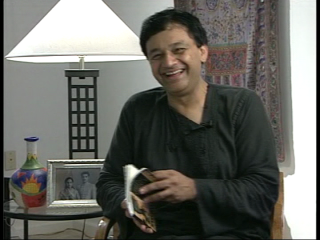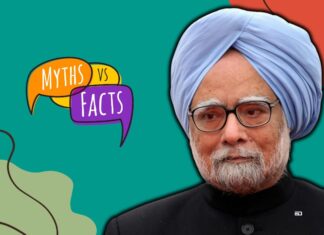We live and we die, but what remains behind are our deeds. For different people the definition of ‘deed’ differs. And in my opinion, today, the 4th of February, marked the birth of an eminent poet whose deeds were his words. Agha Shahid Ali was one of the prominent poets who belonged to Kashmir but spent most of his life in the United States of America. Most of works revolve around the Kashmir conflict and even today, several years after his death, prompt all the readers to introspect and look back at what India has become since independence and the partition, a part of history that still evokes hatred in our hearts. One of Agha Shahid Ali’s poems which has not been critically analyzed by many, bears the title ‘Learning Urdu’. Thus in his memory, this article attempts to shed light on the gravity of the poet’s words.
The poem captures the emotions that were involved during the partition of 1947. Throughout the poem the poet tries to distance himself from the dilemma that Kashmiris face post the partition – a sense of lack of belonging to either of the two countries. The partition left Kashmiris divided in their understanding of who and what comprises of India and what distinguishes India from Pakistan. The poet tries to analyze the current devastation and situation in Kashmir by asking Dogri, the language in which Kashmiris speak, to explain the cause of this mayhem.
Dogri has the unique ability of being written in both Arabic as well as Devnagri script, making it the ideal combination of Urdu and Hindi, the commonly spoken languages in India and Pakistan, the two divided countries. Through the first stanza the poet sheds light on the background of the theme of the poem. He makes the reader aware of the partition of the Indian subcontinent into two nations full of anger and hatred. The poet does so by mortalizing a language. By asking the reader whether like any other mortal, even the fate of Dogri will result in nothing but death. The poet uses metaphors such as ”men dissolved in alphabets of blood” and ”syllables of death” to stress upon the fact that the simplest way of killing a language, is by using it as a means to spread hatred. Moreover, it is made apparent that the only common language is the language of bloodshed. The partition stole the people off the common string that bound them all together. It stole from them off their language, leaving the fate of their language to be undecided.
The poet then evokes pain in the heart of the readers by telling the tale of Dogri. By mentioning the lack of sense of belonging that the language is facing. The use of phrases like ”half the word” are a reference to the loss of identity. The language has been uprooted from its homeland. A land which was once called Hindustan, but has today been divided into India and Pakistan. The language can no more identify itself by the village which has been broken up into two, with the two halves lying across ”the line of blood” or the Line of Control. The language also hints at its extinction, and the only reason for the same would be the divide created between Kashmir, a place where cultures used to converge. But now history cannot be undone, ”friends dissolve” across the borders leaving only enemies, forcing each half to cling onto the little that is left of their common language. The half understanding of the world only fuels hatred, giving rise to ”bitter stanzas” of a frustration and anger which cannot be contained. A hatred with no reason or direction. The reference to the ”dead poet” can have two meanings. Firstly, it could mean the people who divided the country into two, created angst and then just stepped aside and let the avalanche of anger destroy humanity. However this could also be a reference to the misinterpretations of the language that have become prevalent. A situation where words of another are put into the wrong context in order to aid the devastation.
In the third stanza the poet decides to break out of the story that Dogri is narrating and tries to analyze his own position in the aftermath of the partition. The poet cannot sympathize with the language because he fails to understand the reason behind the partition, the need for the insurmountable sufferings. Shahid Ali is himself so traumatized by the series of events that his heart is unable to attach a degree to the amount of pain he feels. He is so overcome with emotion that he has become immune to it. All he wants, is answers. Answers about what led to such ”bitter couplets” from arising.
Dogri then continues his narrative by describing how his once famous stature has now dissolved ”into letters of blood”. How the letters which once came together to bind a community, were today being used to abuse one’s neighbour. How the one thing that identified culture, became the source of its destruction. In the concluding stanza, it seems as if the poet assumes the role of the famous Urdu poet, Ghalib. He stands at the ”crossroads of language”, the point where language, culture and identity intersect. But Ghalib is being forced to choose a side, to choose between the Kashmir that has been divided into India and Pakistan, even though it retains the same culture, lifestyle and language. He masquerades as a beggar in order to disguise himself from being identified, from being asked to choose between the two. From being asked to choose between his religion and his country.



































